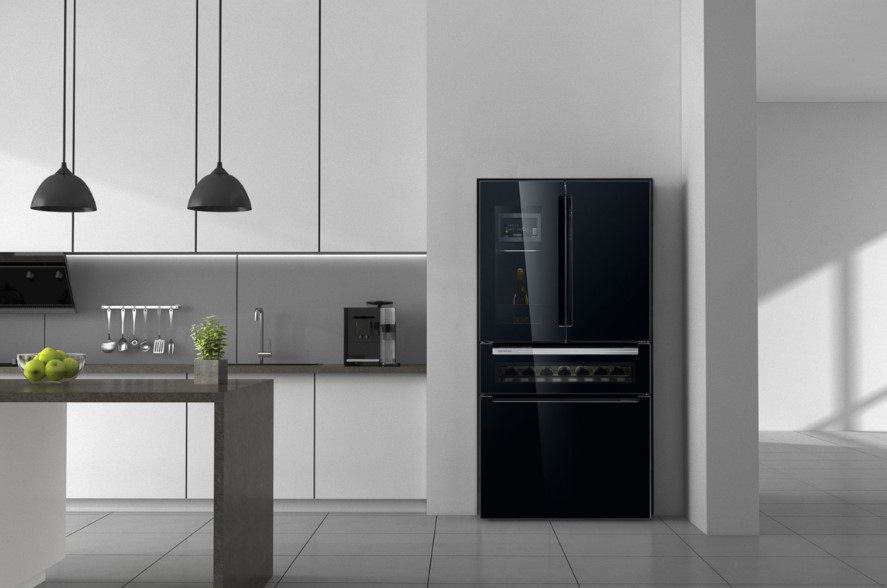
Siemens, known for high-quality appliances but what about wine storage? Simply put, while the fridges are very good at what they do, their role is food preservation. This makes them unsuitable for chilled wine storage. Nonetheless, all that refrigeration technical knowledge is still available with their specialised wine fridge range. The range is extensive, so you can choose and buy a wine cooler that will satisfy your inner connoisseur. Siemens fridges are excellent, but you want to know about crisply chilled vino, which raises the next question.
What is the Difference between a Wine Fridge and Food Fridge?
Your kitchen fridge has a lower temperature to ensure the longevity of your groceries. This is far too cold for optimal wine storage, with wine generally preferring a slightly higher temperature. Other issues include vibration, light control, humidity and shelving materials, which can impact your wine collection. If you simply want a few chilled bottles now and again, your kitchen fridge will suffice. If you want your wine collection to be held at an ideal temperature, with all the checkboxes ticked, then a dedicated wine cooler or fridge is the way forward.
How does Humidity Affect Wine?
High humidity, above 70%, will not only affect the labelling but may cause mould to grow on the outside of the bottle from the glue. This may not affect the contents necessarily but is not an appealing thought. Humidity below 50% starts to dry corks out. Not only can this cause brittleness that makes corking your wine a real danger, but the cork may also pop out. Cork shrinkage can also lead to fluid loss, or worse, degradation of the wine. If there is anything else in the fridge, such as a food product, this smell will likely taint the wine. This can be avoided with a well-designed cellar or refrigeration unit with an integrated humidifier.
Shedding Light on the Wine Cooler vs Fridge Debate
Light, and in particular, sunlight, affects wine badly. This is the reasoning behind wine bottles’ dark colouring. While your kitchen fridge may only light up when the door opens, usually over 20 times daily, it also hides your bottles from view. A wine fridge, on the other hand, showcases your collection behind UV resistant glass. The interior lighting is provided by cool blue LEDs, which are much softer and will not degrade your wine. Checking on the contents is courtesy of touch-screen panels which show all the relevant information without ever having to open the door.
Ideal Temperatures for Storing Wine
Wine is best kept at an average of 12*C, but different wines prefer different temperatures—bubblies, like champagne, roses and bruts like a slightly different range. Siemens wine fridges accommodate this by having independent zones inside. Depending on the model selected, you can choose between 2 or even three temperature areas, ensuring your wines are being chilled to perfection.
Benefits of a Having a Wine Fridge
These are excellent looking appliances, with sleek lines and beautiful lighting that will blend with any decor. Cutting edge technology takes all the guesswork out of temperature control while ensuring ideal shelving, vibration and light conditions. Coolers and fridges come in many sizes, which is great news whether you live in a mansion or a one-room flat. Here’s to perfectly chilled wine – Bottoms up!
